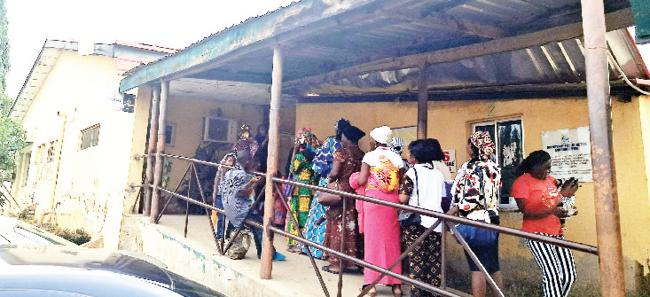Summary
In this special report, ABDULRAHMAN ZAKARIYAU exposes the chaos within Abujas overwhelmed hospitals, where time, resources, and hope are dangerously scarce
Source: The Punch on MSN.com

AI News Q&A (Free Content)
Q1: What are the main challenges facing public healthcare delivery in Abuja and Nigeria in recent years?
A1: Nigeria’s public healthcare system faces severe challenges, including chronic underfunding, inadequate infrastructure, and a shortage of qualified health personnel. As of 2018, only 5.03% of total national health expenditure came from the government, while citizens pay about 74.85% out-of-pocket. This heavy financial burden, coupled with the emigration of skilled professionals (brain drain), leaves hospitals overwhelmed and patients at risk of poor outcomes.
Q2: How does the lack of health insurance affect patient outcomes in Nigerian public hospitals?
A2: Low rates of health insurance coverage mean most Nigerians must pay directly for healthcare services, leading many to delay or forgo treatment. This out-of-pocket model increases the risk of catastrophic health expenditures and contributes to preventable deaths and poor health outcomes, particularly in public hospitals where resources are already scarce.
Q3: What recent technological innovations have been proposed to address health insurance accessibility in Nigeria?
A3: A 2023 study introduced an AI-based recommender system to help users select suitable health insurance plans. The system uses algorithms to filter health management organization (HMO) options by location and price, recommending the best fit for individuals. Such tools aim to reduce barriers to health insurance uptake by simplifying complex choices and matching plans to users’ financial capacities.
Q4: What impact did the COVID-19 pandemic have on the Nigerian healthcare system, especially in Abuja?
A4: During the COVID-19 pandemic, Nigeria's healthcare system was further tested, revealing gaps in data management, resource allocation, and infection control. A comprehensive dataset compiled during 2020 highlighted the strain on facilities, budget limitations, and the need for coordinated public health responses, particularly in urban centers like Abuja.
Q5: How does the shortage of healthcare workers influence patient safety and service quality in Nigerian hospitals?
A5: The migration of trained medical professionals to other countries has led to a critical shortage of healthcare workers in Nigeria.
Q6: What policy recommendations have been made to improve mental health care in Nigeria?
A6: Despite efforts to address mental health, less than 10% of Nigerians with mental illness can access professional care, and only about 3% of the health budget goes to mental health services. Policy recommendations include increasing funding, improving data collection, integrating mental health into primary care, and enhancing public awareness to reduce stigma.
Q7: What are the potential benefits and limitations of using artificial intelligence to assist Nigerians in choosing health insurance?
A7: AI-powered recommendation tools can empower users by presenting tailored insurance options, reducing cognitive overload, and improving access to relevant information. However, limitations include the need for reliable data, digital literacy, and equitable access to technology across all socioeconomic groups.
References:
- Healthcare in Nigeria - https://en.wikipedia.org/wiki/Healthcare_in_Nigeria
- Mental healthcare in Nigeria - https://en.wikipedia.org/wiki/Mental_healthcare_in_Nigeria
- Patient Safety in Nigeria - https://en.wikipedia.org/wiki/Patient_Safety_in_Nigeria





